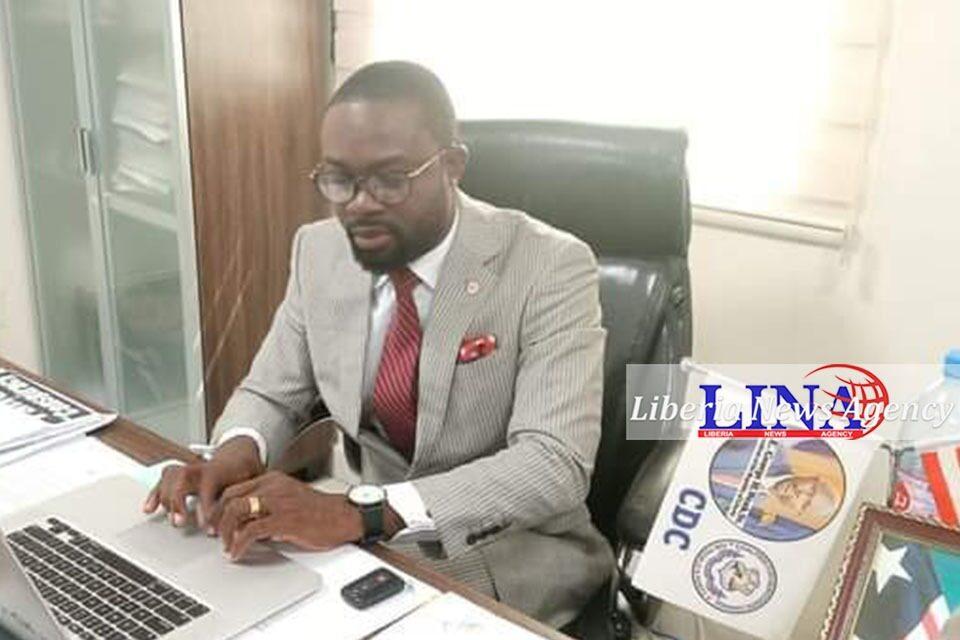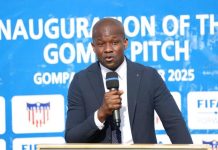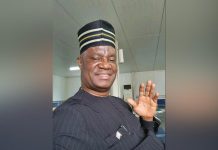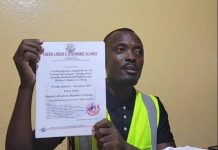Africa-Press – Liberia. When the BBC’s Correspondent uses two-face dark shades to report falsehood, where are the facts, references, quantitative economic reliance and respect for the ABC of good journalism?
In the context of the Ceteris Paribus reasoning − holding all factors constant, let’s assume unarguably, that BBC’s Correspondent Jonathan Paye–Layleh lacks the simplest macroeconomics knowhow and 101 deductive understanding about the facts, stats and meaning of a “Tatter Economy”, less to say why he elected to have written a makeup article with zero reference and sources that may have informed his bias judgment, this rejoinder seeks to unwrap the facts.
In 2016, prior to the inauguration of H. E President George M. Weah, more than 2.2 million Liberians were unable to meet their basic food needs, of which almost 1.5 million (68%) resided in rural areas, 1.6 million were below the food-poverty line, and 670,000 lived in extreme poverty.
Regional and urban-rural disparities in poverty rates widened due to the Ebola crisis and the collapse of global commodity prices. (Source: World Bank, Poverty & Equity and Macroeconomics, Trade & Investment Global Practices. Emissions data sourced from CAIT and OECD.
Notes: e = estimate, f = forecast. NA (a) Calculations based on 2016-HIES. Actual data: 2016.
It has also been gathered that ONLY US$8 million was discovered within the Country’s reserve, contrary to the most talked about “150 million” the UP-led government bragged to have turnover.
Liberia’s Current Economic Overview, the raw facts to Paye Layleh’s Falsehood! In view of the available researchable sources mentioned herein to juxtapose the time interval, (2016 to Current), the Country’s economy is rebounding after contracting for two consecutive years. Growth is projected by 4.7% ( World Bank).
According to the World Bank, Liberia’s economy is recovering with output expanding in key sectors over the first five months of 2021. In agriculture, rubber and crude palm oil production increased by 29.3 percent and 3.3 percent, year-on year, respectively.
This is also due to a recovery in international prices and industries like: the production of gold, cement, and beverages increased, reflecting favorable international prices as well as an uptick in export, construction, and consumption.
At the same time, iron ore production has increased by 14.6 percent compared to the first five months after the lockdown (from April to August 2020), when it fell by 8.3 percent, year-on-year, as production remained below pre COVID-19 levels.
According to the World Bank, the country’s Economy is projected to expand by an average of 4.9 percent in 2022-23. Growth will be driven mainly by the mining sector and external demand while structural reforms are expected to increase activity in mining, agriculture, and construction.
Consistent with the rebound in economic activity, inflationary pressures have moderated. The rate of inflation slowed steadily to 7.1 percent by July 2021 due to a decline in food prices and the Central Bank of Liberia (CBL) cautious monetary stance while recovery in the price of main export commodities, on the back of renewed international demand has boosted the value of exports and improved the trade balance.
Liberia’s fiscal position has also improved in the first five months of 2021 due to increased revenues and spending consolidation the amended PFM Act that requires the country to align its fiscal year to the calendar year in line with its regional counterparts can be highly overemphasized as a key indicator for prudent budgeting.
In spite of the effects COVID-19, inflation moderated sharply to 13.1 percent by December 2020 from 20.3 percent the year before, due to tight macroeconomic policies.
Drop in world oil prices also allowed some easing in Liberian fuel prices and frequent drivers of inflationary pressures although their decline was moderated by the introduction of an excise tax early in the year.
On the Monetary front, the Central Bank of Liberia (CBL) has maintained a tight monetary policy stance to help contain inflationary pressures which slowed steadily to 7.1 percent by July 2021 due to a decline in food prices and cautious from the CBL’s cautiouss monetary stance.
The government also continued to exhibit fiscal consolidation with strong revenue efforts that are paying off very well as the exchange rate on market is nearing one to one (140 LRD to 1 USD : January 2022.)
Evident by the current stability and prospects of the Liberian Economy, World Bank’s Mamadou Ndione, Senior Country Economist to Liberia is on record to have said, “the Government is implementing reforms on both the revenue and expenditure sides that have started paying off. These need to be sustained and complemented by others in the areas of Governance and business environment.”
He said Increase in revenue and low operating expenditure to finance investments; will improve governance and boost efficiency of expenditure; and will attract donors to focus more on better supporting the Pro-Poor Agenda for Prosperity and Development (PAPD) to assist delivery of social services around the country.
Meanwhile, as growth in private consumption remains modest because of the COVID-19 pandemic, H. E President George M. Weah, through his 5th SONA, has declared that there will be an increase in Capital Spending. The multiplier effect of the President’s announced increase in capital spending will promote job creation, raise purchasing power and labor productivity.
This, Economic meaning, will lead to productive asset creation, which in turn will also aid economic development− especially Infrastructure like the more than 400km of new roads, modern markets, Health Facilities, Schools, Cooperate State of the Arts Office Complex, as well as recreation hubs that are currently being built for the first time since Liberia’s Independence.
Despite these visible facts and unprecedented gains, BBC Correspondent, Jonathan Paye-Layleh said “nearly 20 years after Liberia’s civil war, the country has made no progress; indicating that the “State of the County is Deplorable”
The BBC’s journalist is quoted by Front-page Africa under an article titled: “Economy in Tatter” Top Liberian Journalist laments Deplorable State of His Country”.
Can anybody take this BBC guy serious in the wake of the terrible lies contained in his article without facts, data, reliable references, quantitative economic reliance and respect for the ABC in good journalism?
Why did the BBC’s Correspondent used two- face dark shades to report falsehood!
Where was the BBC’s Correspondent when the World Bank approved a new financing to improve Liberia’s fisheries sector management and enhance the livelihoods of targeted beneficiaries and increase Government revenues?
What makes the NOT to BBC’s Correspondent report that the Liberia Sustainable Management of Fisheries Project (LSMFP), funded by the International Development Association (IDA) in the amount of US$40 million (US$20 million grant and US$20 million credit), will improve conditions for fishermen and women, increase value addition for export, and help address economic vulnerability of the Liberian economy to climate change and vulnerability of food security ?
When will he remove the double face dark shades to report that the US$40 million project will also support Aquaculture development, strengthen governance and developing human and institutional capacity, and improve policies, strategies, institutional and legal frameworks. as it was said by Dr. Khwima Nthara, World Bank Country Manager in Liberia?
How does the BBC’s Correspondent see key project beneficiaries which include fisheries communities, fish processors, sellers and fish consumers and the 11,000 fishers who directly support around 300,000 people using about 3,300 canoes?
Is the BBC’s Correspondent not aware that the Liberian population in general will also benefit from the project’s contribution to enhancing fish productivity, food security, and job creation and expanding the economic base?
For More News And Analysis About Liberia Follow Africa-Press






